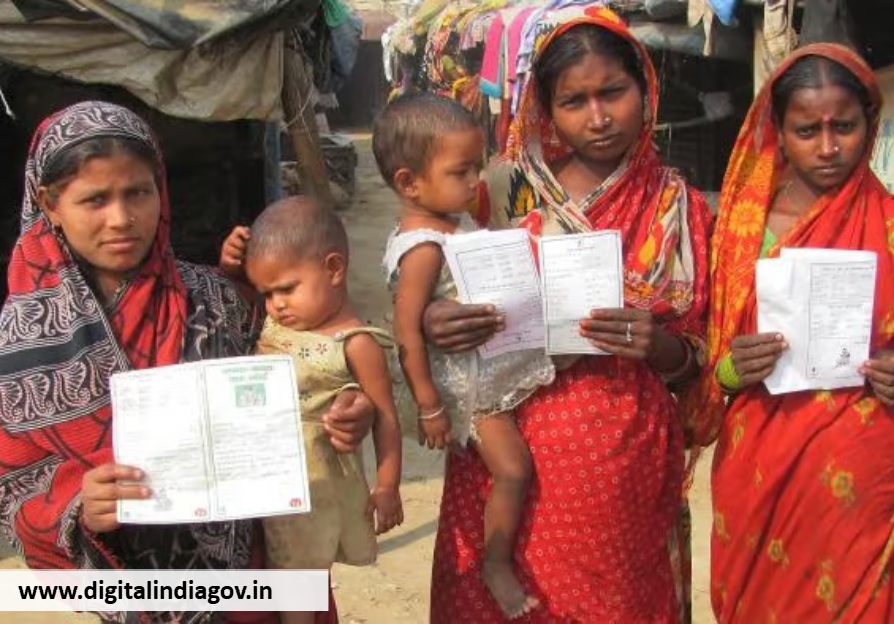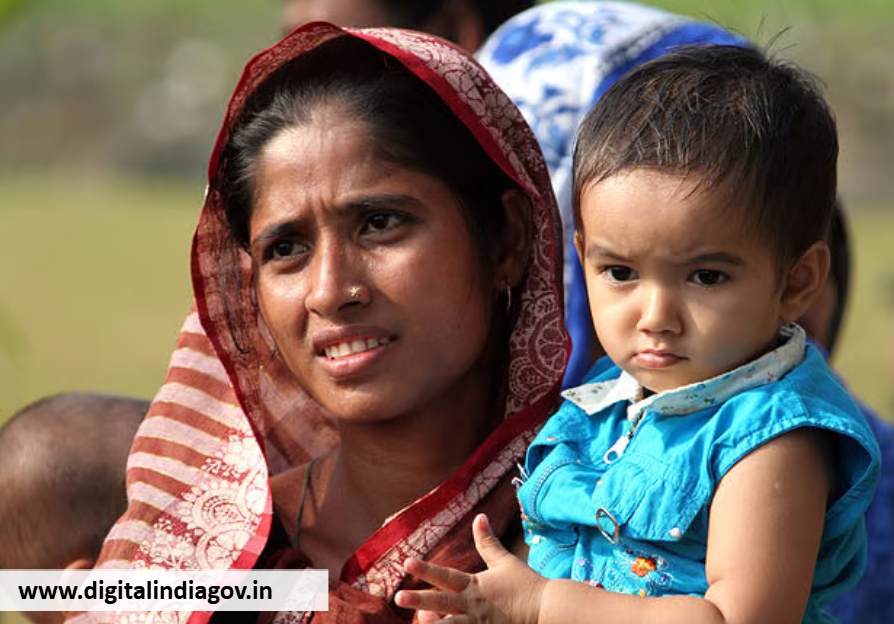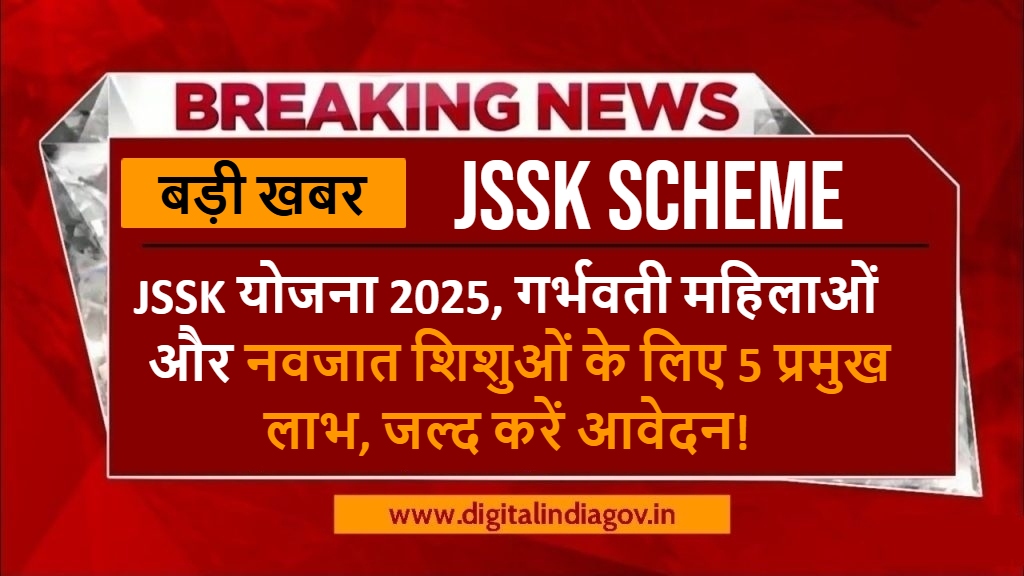JSSK Scheme, Maternal and newborn death rates were traditionally high in India for a number of reasons, such as insufficient medical treatment, lack of access to healthcare facilities, and financial limitations. To tackle this issue head-on, the Indian government launched the ground-breaking Janani Shishu Suraksha Karyakram (JSSK). By guaranteeing that expectant mothers and babies receive prompt and proper medical care, the JSSK program seeks to reduce these death rates. Due to financial worries, many Indian women and families are unwilling to seek medical attention. By offering free prenatal care, delivery services, cesarean sections, postnatal care, and neonatal care, the JSSK program removes this obstacle.
Ensuring women and their babies have access to high-quality healthcare is essential in a country as varied and complicated as India, where healthcare inequities may frequently be glaring. In order to lower maternal and newborn mortality rates and improve the general health of expectant mothers and their unborn children, the initiative was started in 2011 and offers free, cashless medical treatment. This blog explores the main features, advantages, effects, and goals of the Janani Shishu Suraksha Karyakram.
Contents
The Objective of Janani Shishu Suraksha Karyakram
A component of the larger National Health Mission (NHM), the Janani Shishu Suraksha Karyakram, or JSSK, focuses on pregnant women and newborns. JSSK has been implemented in all Indian states and union territories. Its primary objective is to ensure that financial constraints do not obstruct women’s access to essential maternity and child healthcare services.
The JSSK wants to encourage more women to seek prompt medical care throughout pregnancy, labor, and the postnatal period by offering free and cashless services. Additionally, it guarantees the newborn’s health. It provides for all medical requirements, including hospitalization to the neonatal intensive care unit (NICU), that may occur within 30 days following delivery.

Also Read: What Is PMSBY Scheme, digitizeindiagovin.com, Typingspeedtestonline, Nebsit Council
Key Features of Janani Shishu Suraksha Karyakram
Essential components of the Janani Shishu Suraksha Karyakram guarantee comprehensive and reasonably priced maternity and pediatric healthcare services.
Free Delivery Services
Offering free delivery services in public health facilities is one of Janani Shishu Suraksha Karyakram’s most important features. This covers all childbirth-related costs and guarantees safe births for expectant mothers, whether via cesarean section or vaginal delivery. This covers the price of any necessary blood transfusions, medical treatments, surgery, prescription drugs, postnatal care while the patient is in the hospital and even neonatal care for a month. Cash Assistance for Transportation
For pregnant women who qualify, JSSK provides monetary help to lessen the cost of transportation. The program offers free transportation from one’s house to a medical facility, between facilities in the event of a referral, and from the hospital to one’s home upon release. When women go to government healthcare facilities to give birth, this financial incentive helps defray some of the associated costs. The initiative encourages women to choose institutional deliveries over unaided home births, which might be riskier, by offering this incentive.
Free Diagnostics
By providing free diagnostic services to expectant mothers and newborns, JSSK aims to promote early and precise diagnosis. This includes essential diagnostic procedures that assist track the health of both mother and child, such as blood tests, ultrasounds, and others. Timely diagnosis enables appropriate medical treatment and early action.
Free Medicines and Consumables
While in public health facilities, JSSK guarantees that mothers and babies receive necessary medications and supplies at no cost. For safe and sanitary birthing and postpartum care, this includes prescription drugs, sterile delivery kits, and medical supplies. This element considerably lowers families’ out-of-pocket costs.
Free Diet
For three days following a normal birth, the hospital provides the mother with a free, wholesome meal; for women who have had a cesarean section, the hospital does this for up to seven days. This facilitates the mother’s speedier recuperation and strength restoration after giving birth.
Maternal and Newborn Health Services
The program’s coverage goes beyond childbirth to include prenatal and postoperative care for expectant mothers as well as critical medical treatment for babies. This covers examinations, help with nursing, immunizations, and specialized care for ill neonates. A comprehensive approach ensures better overall health outcomes for mothers and infants.

Also Read: Selva Magan Scheme, shaladarpanportalgov.com, yojanaforall.com, Onlinereferjobs
Benefits and Impact of Janani Shishu Suraksha Karyakram
Significant advantages have been provided by the Janani Shishu Suraksha Karyakram JSSK, which has improved access to healthcare for mothers and children and lessened financial constraints.
Increased Institutional Deliveries
Institutional deliveries have significantly grown as a result of economic aid and free delivery services. Moving away from home births and toward medically supervised healthcare facilities greatly lowers the risk of labor problems, which is good for the health of both the mother and the unborn child.
Reduced Maternal Mortality
Shishu Janani By guaranteeing that expectant mothers have access to skilled medical care throughout birthing, Suraksha Karyakram has significantly contributed to the decline in maternal mortality rates. In the event of an emergency, women who give birth in medical facilities are more likely to get prompt medical assistance.
Improved Child Health
JSSK’s emphasis on offering neonates complete medical treatment has helped to lower infant death rates. Child health outcomes have improved as a result of early diagnosis, vaccines, and prompt, appropriate medical intervention for ill babies.
Equitable Access
The program’s focus on offering cashless and free services has assisted in closing the access gap to healthcare for women from underprivileged and marginalized communities. This guarantees that all mothers and children, regardless of their financial situation, receive the care they require. Because they frequently lack the financial resources to give birth, single moms also benefit greatly from Janani Shishu Suraksha Karyakram.
Public Awareness
JSSK has raised awareness of the need for medical care throughout pregnancy and childbirth. As a result, more women and families are prioritizing safe delivery in medical facilities and making educated healthcare decisions.
Since its launch in June 2011, the Janani Shishu Suraksha Karyakram (JSSK) has had a major influence on maternal and child healthcare in India. It is anticipated that this program would help over 12 million expectant mothers nationwide. State governments occasionally make changes to this program to expand its benefits and scope. By 2014, the program also began to pay for the costs associated with pregnancy and childbirth. Additionally, up to the age of one year, the kid might now get free treatment at public hospitals.
Eligibility for Janani Shishu Suraksha Karyakram
In order to be eligible for Janani Shishu Suraksha Karyakram, a woman must be pregnant at the time of application and come from a household that is below the poverty line (BPL). This program is available for up to two live births, and the mothers must be older than 19. Address verification, an Aadhar card, a ration card, a domicile certificate, and a Janani Suraksha card are all necessary for JSSK applications Depending on the rules established by the health department of each state, the qualifying requirements may differ slightly.
How to Apply for Janani Shishu Suraksha Karyakram?
Government healthcare facilities, including public hospitals, community health centers, and primary health centers, carry out the program. For prenatal care and delivery, the expectant mother must travel to the closest government health institution. Ask to be enrolled in the JSSK program when you visit the hospital office. An application form will be sent to the expectant mother, who must fill it out with her personal and medical details and attach supporting documentation like a copy of her address proof, Aadhar card, and BPL ration card before submitting it.
The woman will be enrolled in the program following the verification of these data and supporting documentation. According to the Janani Shishu Suraksha Karyakram criteria, she will be entitled for free prenatal care, delivery services, postnatal care, and infant care. This comprises complimentary medications, tests, and health care services associated with pregnancy, delivery, and the first few months of life.

Also Read: Joy Bangla Pension Scheme, Mobilenumbertrackeronline, indnewsupdates.com, ssorajasthanidlogin.com
Conclusion
One admirable program in India’s continuous attempts to improve mother and child healthcare is the Janani Shishu Suraksha Karyakram. By tackling the financial obstacles that frequently prevent women from obtaining medical treatment, the initiative has proven to be a crucial step toward accomplishing the nation’s healthcare goals. The JSSK has saved lives and given women and families the power to make educated healthcare decisions by providing free and cashless services.
Maternal and child healthcare in India has been significantly influenced by the Janani Shishu Suraksha Karyakram’s all-encompassing strategy, which includes free delivery services, financial aid, diagnostics, and medical treatments. The initiative continues to make a substantial contribution to lowering maternal and infant mortality rates and enhancing the general health of mothers and babies by removing financial obstacles and encouraging prompt access to high-quality healthcare. The initiative is still a ray of hope for improved mother and child health outcomes in India as it develops and grows.
Work together with Ketto to improve the lives of expectant moms and their babies from disadvantaged families. To guarantee that those who need it most have access to high-quality maternity and newborn care, start a crowdfunding campaign right now.
@PAY
